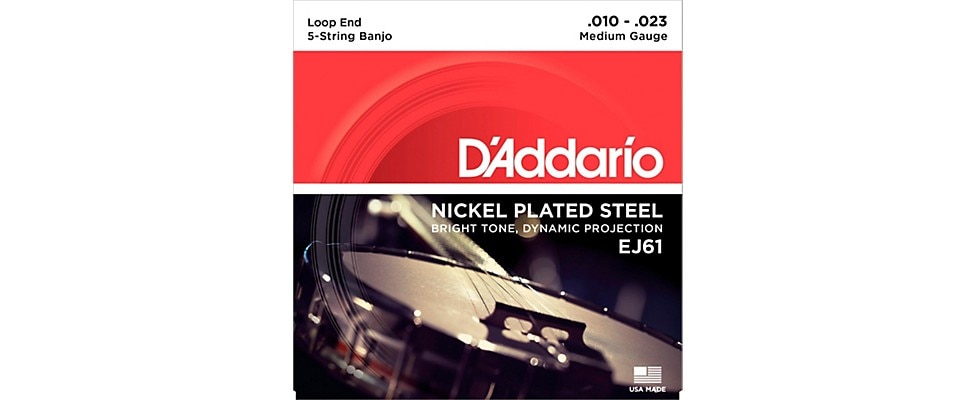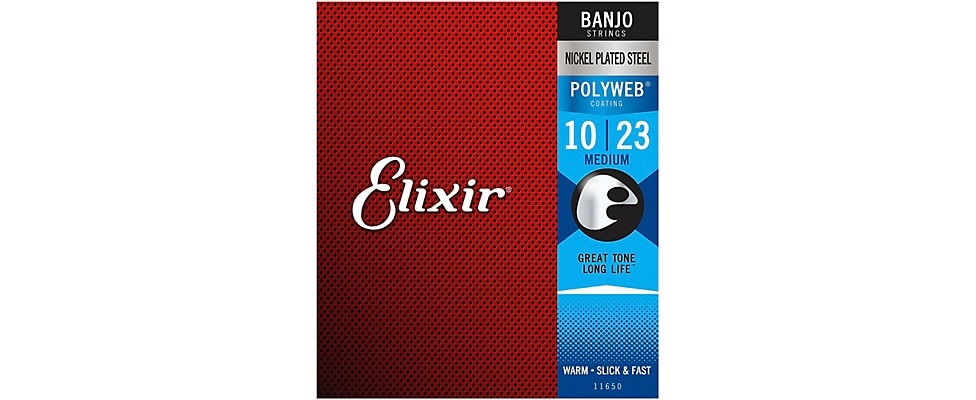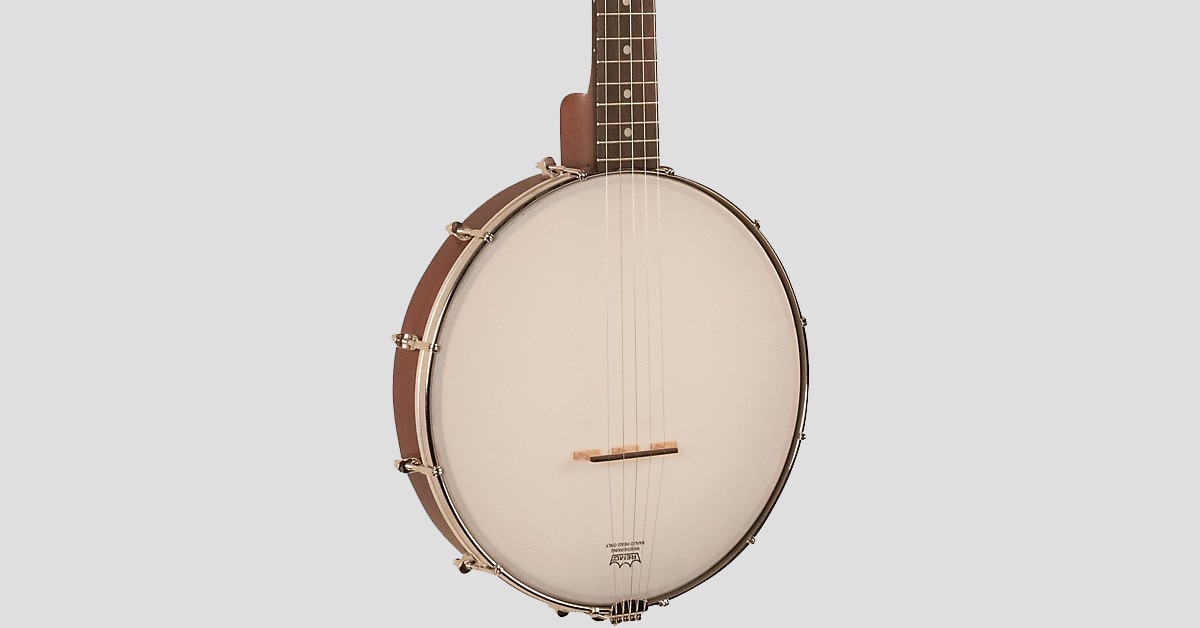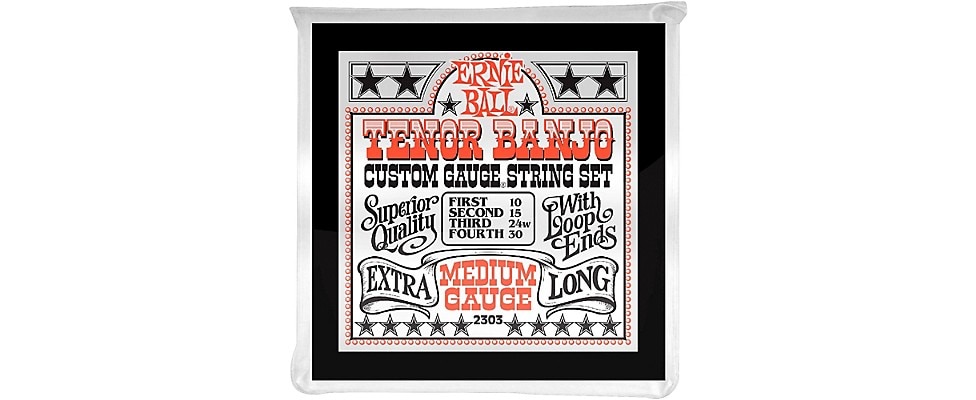Confused by all the choices? We’ll help you pinpoint the right set of strings for your banjo and playing style.
The strings on your banjo have a big influence on your instrument’s sound and playability. If you’ve explored Musician’s Friend’s dozens of different banjo string choices, you’ve likely realized there’s plenty to think about when choosing the right ones. In this guide we’ll walk you through those choices to find the strings that’ll help you produce the banjo sound you’re after while enjoying great playability.
Table of Contents
How Many Strings?
What Gauges Do I Need?
Who Makes the Best Banjo Strings?
String Materials and Coatings
How Many Strings?
As you probably know, aside from the standard 5-string banjos beloved by bluegrass players, banjos come in several other configurations. The world of 4-string banjos has been enjoying a revival thanks to their featured role in bands like Mumford and Sons and The Dropkick Murphys.
Ernie Ball Medium Gauge Tenor Banjo Strings have the right response to bring out the best in flatpicking techniques.
At Musician’s Friend you’ll find a wide selection of strings designed for 4-string Irish tenor and plectrum banjos as well as the 6-string models so popular with guitarists as a crossover instrument.
Shop Musician’s Friend’s complete selection of banjo strings.
Shopping is easy since you can sort by:
- Number of strings
- String gauge
- String materials
- Coated or uncoated strings
- Type of winding material
What Gauges Do I Need?
If you’ve hung out on web banjo forums or talked to fellow banjo players, you already know that there’s no one answer to the question of what gauges are right for you. Some players swear by light-gauge strings; others insist that for full-bodied tone and strong midrange response, medium-gauge strings are the way to go. Because banjos vary greatly in their native tone and design, and players use all kinds of picking techniques and have very different attacks, experimentation is the key.
It’s generally felt that heavier gauges are somewhat harder to play. Though lighter strings can’t produce their depth or volume, techniques such as hammer-ons, pull-offs, chokes, and slides are easier to perform using lighter gauges. They also deliver crisper, clearer tone. One drawback to lighter gauges are their tendency to break, especially the first and fifth strings.
Players with a strong pick attack may find light strings lacking the tension they need to dig into their notes. Because they offer more projection, heavier gauges can help prevent feedback during live amplified performances since mics don’t need to be turned up as high. On the other hand, lighter strings can bring out subtle tonal nuances and playing techniques that make them popular for recording.
Another factor to consider is the construction of your banjo, especially the strength of its neck. Heavier strings exert more tension that can result in the neck shifting or bowing. It’s often advised that vintage banjos be strung with lighter gauges to minimize these risks. In the case of newer banjos, it’s a good idea to check the manufacturer’s recommendations as a starting point.
The same gauge is often used on the first and fifth strings. Though manufacturers don’t always agree on the specific numbers, here are typical gauges based on the nominal weight of the string set:
- Light: .095-.010-.013-.020-.095
- Medium Light: .010- .011-.012-.020-.010
- Medium: .010-.012-.016-.023-.010
You’ll see other gauge designations such “Light Plus” and “Almost Medium” that offer slightly different gauge options. Since banjo strings are inexpensive, experimentation in finding what works for you isn’t a costly proposition.
If you’re new to the banjo, it’s probably best to stick with light gauge strings for the first year or so, until you have developed some skill. At that point you may want to buy several different gauge sets and begin experimenting with them. Note the date you installed the new strings on the string package and keep it your case as a reference. Also keeping notes on what you do and don’t like about the strings can help you zero in on your preferred set.
Who Makes the Best Banjo Strings?
As with the question about best gauges, there is no pat answer. Because each manufacturer uses slightly different alloys and manufacturing processes, strings from two different makers with the same nominal gauge and alloy may feel and sound different to your ears and fingers. Many banjo players find the greatest difference in the plain rather than wound strings.
With so many other variables involved in banjo designs, if you own multiple instruments, you may well find you you prefer different gauges and brands for each banjo.

Lots of bright projection coupled with playing tension comfort make D’Addario Nickel Plated Steel Banjo Strings a perennial favorite.
String Materials and Coatings
Only the 4th or B string on 5-string banjos is usually wound. (Long-neck 5-string banjos often have wound 3rd and 4th strings as do tenor and plectrum banjo string sets due to the greater tension needed for the flatpicking style used on them.) Wound strings may have either a round or a hex-shaped steel core and are almost invariably roundwound. The wound string(s) in a set are indicated by a small “w” following the gauge number.
Here are the characteristics of the most popular alloys used in banjo strings:
- Nickel-plated Steel: Bright tone with strong projection and smooth feel.
- Phosphor Bronze: Used on wound 4th strings, it produces a warmer tone.
- Stainless Steel: Balanced tone and projection with smooth feel and corrosion resistance.
- Coated Strings: A polymer coating over the string wire reduces corrosion and extends life. Tonal characteristics vary depending on the manufacturer.

Elixir Polyweb Banjo Strings have a tubular poly coating that extends their life while delivering tonally rich sound.
After reading this guide, if you’re still unsure which strings are right for you, we invite you to call our friendly, knowledgeable Gear Heads at (877) 880-5907.
If you’ve been thinking about a new banjo, Musician’s Friend offers an extensive selection ranging from affordable starter instruments to professional banjos worthy of the accomplished player. Explore our complete assortment of banjos.
To learn more about banjos, read our in-depth Banjo Buying Guide.








































































































































